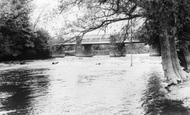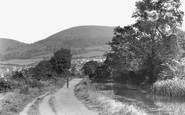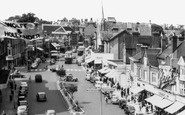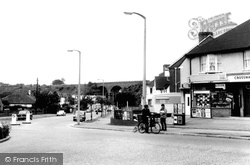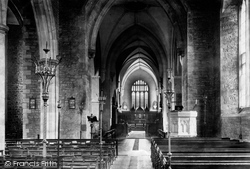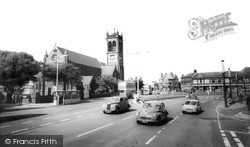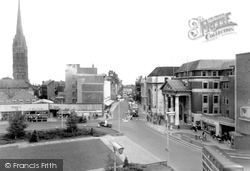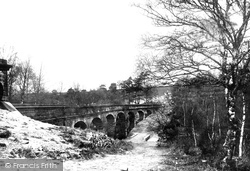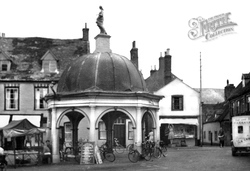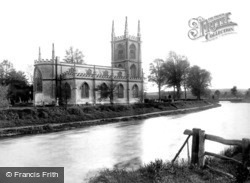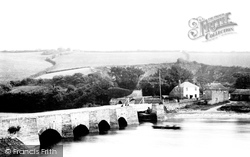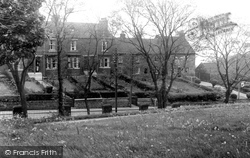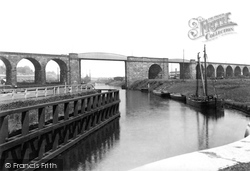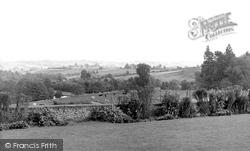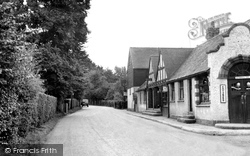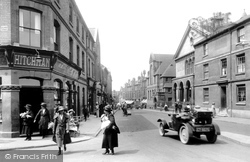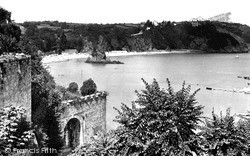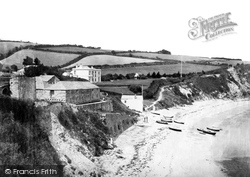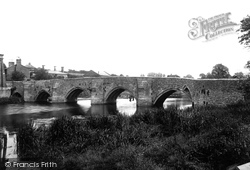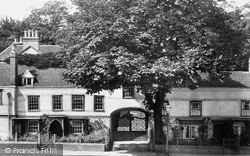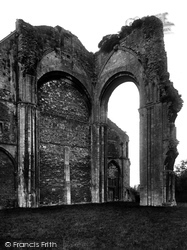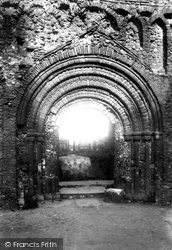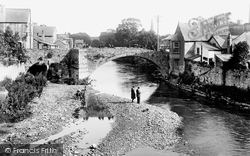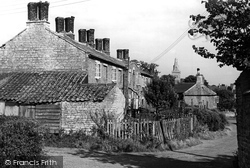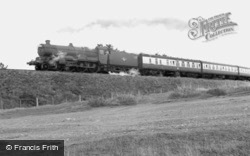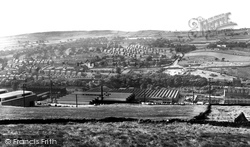Places
Sorry, no places were found that related to your search.
Photos
5 photos found. Showing results 301 to 5.
Maps
83 maps found.
Books
Sorry, no books were found that related to your search.
Memories
1,127 memories found. Showing results 151 to 160.
Esh Winning
I left Esh Winning with my family in 1963 when I was 5 or 6 for a new life in Staffordshire. We initially lived at North Terrace, which is no longer there and later 4 South Terrace. Like Ruth Hill, my father worked at Esh Winning ...Read more
A memory of Esh Winning by
The Rope Swing At The Leighton Bridge
I remember spending many a summer swimming at this spot. Then they seemed to be long hot summers but maybe that's the memory loss of an older man. I noticed that the rope was stiil hanging from the tree which ...Read more
A memory of Welshpool by
The Village Shop
One of my fondest memories of my childhood visits to Ealand was visiting the village shop, which stocked a wide variety of goods and was owned by two sisters, Miss Gertie and Miss Laura Sales. Miss Gertie was in charge of the shop ...Read more
A memory of Ealand by
Takes Me Back
In this picture, the post in the middle of the path is an old canon barrel. When I went for walks along this canal as a kid, I can remember running on ahead of my parents a short distance with my brother and sister to the canon ...Read more
A memory of Pontymister by
Neilston My Home
I was born and grew up in Neilston with my twin sister and brother. My mother had also been born there. Although I moved to Barrhead for a few years I spent so much time going up the hill to Neilston I thought it was time I ...Read more
A memory of Neilston
Our First Visit To Eyam
My husband's family comes from the Derby area. Our son is very proud of his Derbyshire roots, and sought to buy a house close to Derby yet - if possble - in a village in the Peak District. He and his wife spent many days and ...Read more
A memory of Eyam by
In Memory Of My Grandparents
Mr Gran and Grandad had their home in North Stoke, a Mr and Mrs Sallis (Elizabeth and Arthur). They lived in Calendula Cottage, as it was called then. My mother had three sons, Ray the oldest, Tony, and ...Read more
A memory of North Stoke by
Living In Corby
I attended Rowlett Road Infants and Studfall Junior School and Corby Grammar School. I lived in Irving Grove. I enjoyed growing up in Corby and I remember going to the dances at the Catholic School run by a lady named Nellie? The ...Read more
A memory of Corby by
Fond Memories Of Brecks Lane
I have fond memories of living down Brecks Lane for the first 7 years of my life. I remember walking down the lane past Brecks farm down to the Billy woods with my mother and our pet corgi..Bunty we called her. My dad ...Read more
A memory of Kippax by
Bromley By Bow Hospital?
My mother, at the tender age of 17, was taken to Bromley-by-Bow Hospital in the midst of the London blitz to have her first child. She never saw her baby girl, was told she had died and everyone was to be evacuated to ...Read more
A memory of Bromley by
Captions
1,233 captions found. Showing results 361 to 384.
crossroads was a thriving commercial intersection at which three north eastern suburbs meet - Llanishen to our right, Cyncoed to our left and Heath straight ahead through the railway arches
At the east end of the nave aisle and on each side of the chancel arch are large brass posts with decorated candle holders, five in all.
The buildings all survive but the whole view has changed considerably with, believe it or not, a much narrower road.
In the picture we have two buildings from the 1930s: Lloyd's Bank (1932) with its giant arch, and the National Provincial Bank with its neo-classical portico.
There are two massive bridges in the town, and before the line east reaches another viaduct at Golcar, it passes over these smaller seven arches opposite the town of Linthwaite.
The Butter Cross was built in 1689, after the fire of the previous year which destroyed much of the town.
The flagpole is still in place, and only the trees have grown, creating a much more rustic scene than is evident here.
This photograph shows the old four-arched bridge over the estuary. There has been a crossing here since the 10th century. In the background, hedges snake their way up over the slopes.
At the right-hand end of the terrace is the Queen's Arms, a much earlier stone building.
Standing high above all three, it consists of 48 arches plus the two girder spans near the middle shown here.
Although much of St Peter's church dates from as recently as the 14th century, there are signs of a much earlier church on the site.
The much-expanded village rests on an ancient site - the remains of a Roman house were found here, and the church has Saxon foundations.
In the picture we have two buildings from the 1930s: Lloyd’s Bank (1932) with its giant arch, and the National Provincial Bank with its neo-classical portico.
The gabled building on the right with the arches is the Fuller Baptist Church, named after Andrew Fuller, who founded the Baptist Missionary Society.
Inside, two great arches culminate in chimneys which project into the garden.
Small fishing boats are drawn up on the beach, a ramp climbs past the fish cellar, and on the extreme left we can just see an arched incline to a limekiln which was in use from at least 1835
With its five arches, this ragstone bridge over the River Medway is said to be the finest medieval bridge in the south of England.
These, along with the arch, were moved from either St Michael's or one of the London churches and rebuilt at the Chantry by Sir Walter Gilbey.
This photograph shows the great arch at the eastern end of the abbey. It formed part of the structure above which was built the lantern tower and spire.
This view, through the great west door with limestone in the arches, shows the building materials well: Roman bricks, septaria and flint.
Two of the small arches were replaced with one large one, which explains why the bridge is not symmetrical.
The terrace of cottages in Allotment Lane has ragstone walls and a brick main façade; there is a low pediment at the centre with an arched window.
The train is seen from the Carlyon Bay golf course near the Crinnis arch. Diesel locomotives made their first appearance in the late 1950s, and the last steam train ran in 1964.
Stone from here was used to build Sheffield's Wicker Arches that carried the Manchester railway line from 1848 to 1969.
Places (0)
Photos (5)
Memories (1127)
Books (0)
Maps (83)

